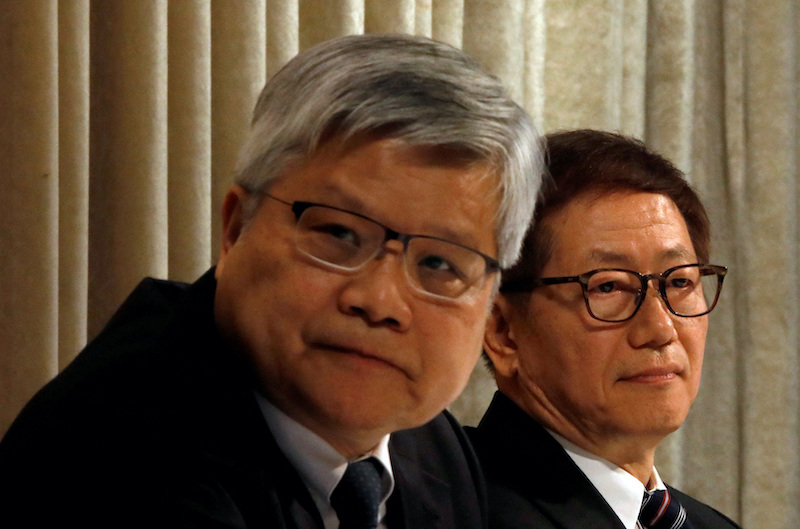(ATF) With a clear eye on China, the European Central Bank has sounded the alarm that Europe could lose its very sovereignty, not just its economic autonomy, if it fails to develop a digital euro. The warning is a reminder of how much is at stake politically in the global race for new electronic forms of central bank money.
In a recent report on the pros and cons of a digital euro, the ECB doesn’t actually name China. It doesn’t need to. The Federal Reserve is still studying whether to issue a central bank digital currency (CBDC) while Japan has no immediate plan to do so. China, by contrast, is already conducting advanced trials of its Digital Currency /Electronic Payment (DE/EP).
The ECB says it is examining the idea primarily because people are abandoning cash in favour of fast electronic payments. “It’s simply a matter of making our currency fit for the digital age,” said ECB President Christine Lagarde said when asked by French newspaper Le Monde whether the ECB was mounting a geopolitical response to the emergence of the digital yuan.
That is no doubt true. Central bankers are finally waking up to the risks that fintech innovations pose for the traditional banking system and hence for financial stability. They are also aghast that Facebook’s proposed Libra stablecoin might threaten their monetary monopoly.
But the concerns of the ECB – and of Europe’s politicians – go wider.
Concern over digital currencies
The report notes that if foreign central banks made their digital currencies available outside their jurisdictions, European citizens could switch out of the euro and foreign exchange risk in the euro area would increase. At the same time, instruments like Libra not denominated in euro could become widely used for European retail payments.
“Such developments would foster innovation but could also threaten European financial, economic and, ultimately, political sovereignty,” the ECB says.
This is strong stuff from a central bank. As Philip Middleton and Alastair Ryan put it in a report for BoA Securities: “We can see why a central bank would not particularly fancy this. If European payments were to be dominated by Mark Zuckerberg and Xi Jinping, the ability of the ECB to influence the Eurozone economy would be severely constrained.”
The EU has been half-hearted in the past about deploying the euro as an instrument of political power. The dollar towers over the single currency by every measure, from its share in global central bank reserves to its use in trade invoicing and international bond issuance.
But the ECB report sums up how attitudes are changing: “Euro area leaders recently stressed that a strong international role of the euro is an important factor in reinforcing European economic autonomy.”
Wide acceptance of a means of payment or store of value not denominated in euro could impair the transmission of monetary policy in the euro area and could ultimately affect financial stability, the ECB explains.
‘Digital euro could support sovereignty, stability’
“In such circumstances, issuance of a digital euro could support European sovereignty and stability, in particular in the monetary and financial dimensions,” it says. That word ‘sovereignty’ again.
In case the political motive was still unclear, the report says a cutting-edge digital currency would “preserve the global reputation of the euro” and support its international role.
In a narrow sense, the ECB is worried that widespread use of foreign CBDCs in the euro area would curtail its room for monetary manoeuvre. ECB researchers Massimo Minesso Ferrari, Arnaud Mehi and Livio Stracca posit that it would need to react twice as much to inflation and output in the presence of a CBDC.
But it is left to the less diplomatic Australian Strategic Policy Institute to spell out the geopolitical prizes that China’s DC/EP could deliver for the Communist party, which has a stated aim of challenging the dollar’s global supremacy.
“DC/EP intersects with China’s ambitions to shape global technological and financial standards, for example, through the promotion of RMB internationalisation and fintech standards-setting along sites of the Belt and Road Initiative,” the ASPI said in a report.
Alternative to SWIFT?
In the long term, a successful DC/EP could therefore greatly expand the party-state’s ability to mould economic behaviour well beyond China’s borders. For one thing, it could serve as an alternative to SWIFT, a secure financial messaging service at the core of the global banking system.
Because it has access to SWIFT communications on national security grounds, the US is able to extend the territorial reach of its laws – a source of deep concern to China and many other countries, especially those under international sanctions, such as Iran.
If it could provide a functional alternative to the dollar settlement system, DC/EP would blunt the impact of any sanctions or threats of exclusion both at a country and company level, the ASPI argued.
China thus has a powerful incentive to blaze the digital currency trail. It is well ahead of its rivals. Not until this month did a clutch of leading central banks – but not the People’s Bank of China – agree on what the main features of a CBDC should be.
For its part, the ECB won’t decide until mid-2021 whether even to formally investigate a digital euro project. “The primary motivation is not that others are ahead,” said Fabio Panetta, an ECB Executive Board member who oversaw the ECB’s exploratory report
Risk of bank runs, CBDC costs, volatile capital flows
Indeed, the report is laced with warnings about the potential drawbacks of a CBDC. For instance, euro area citizens could swap their commercial bank deposits for central bank money, undermining the banking system and increasing the risk of bank runs. (This is a reservation shared, incidentally, by BoA’s analysts, who are very wary of the policy costs of running a CBDC.)
The report also speaks of the need to discourage excessive use of the digital euro as an investment to reduce the risk of attracting huge international investment flows: “The design of the digital euro should include specific conditions for access and use by non-euro area residents, to ensure that it does not contribute to excessively volatile capital flows or exchange rates.”
These words of caution may be warranted, but they hardly constitute a ringing call for the euro to sally forth, dethrone the dollar and nip the yuan’s challenge in the bud.
But they will be music to the ears of Chinese policymakers, who are fully aware of the power of currencies. They also know from their own history the advantage of moving first when it comes to currencies. After all, in the 7th century it was China that was the first to use paper money.
























